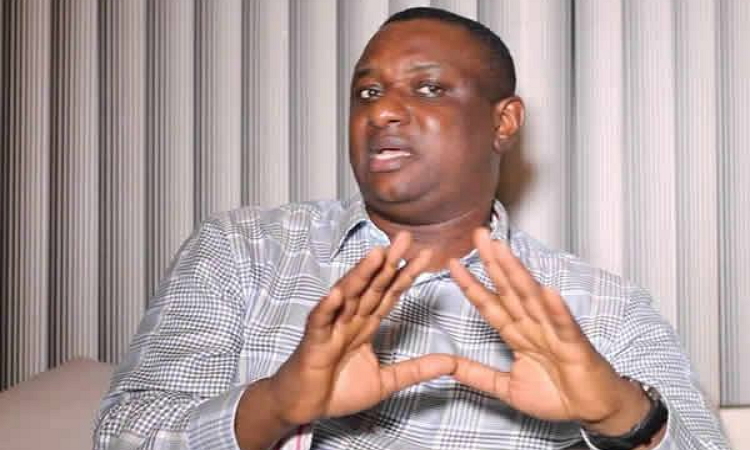Minister of State for Labour and Employment, Festus Keyamo SAN has said that state and local governments, and not the Federal Government, should be blamed for putting 130 million Nigerians in multidimensional poverty.
Keyamo said this on Saturday while reacting to a tweet by the President of Rotary Club of Jos, Michael Oyewole.
The conversation commenced after Keyamo shared infographics containing data on job creation by the National Directorate of Employment (NDE), the agency for job creation directly under his supervision.
Allow me to kindly share the data of job creation by the National Directorate of Employment, (NDE) the agency for job creation directly under my supervision as mandated by Mr. President. It is contained in the link to the Facebook page of the Agency below. A brief breakdown of… pic.twitter.com/6CsDNZURnC
— Festus Keyamo, SAN (@fkeyamo) April 15, 2023
Oyewole pointed out that under the Muhammadu Buhari administration “130 million Nigerians became multidimensionally poor and unemployment rate rose to an unprecedented level”.
Read Also: Labour Party aspirant nabbed over killing of PDP agent in Ebonyi
He was referring to the 2022 Multidimensional Poverty Index Survey report released by the National Bureau of Statistics (NBS) in November 2022.
The survey was conducted by the NBS in conjunction with the National Social Safety-Nets Coordinating Office (NASSCO), the United Nations Development Programme (UNDP), the United Nations Children’s Fund (UNICEF), and the Oxford Poverty and Human Development Initiative (OPHI).
It found that 133 million Nigerians, representing 63 per cent of the nation’s population, were living in poverty.
Reacting to Oyewole’s comment, Keyamo suggested that many Nigerians have erroneously blamed FG for what was not its fault.
He said that sub-national governments (state and local governments) should rather be held responsible since the indices on which multidimensional poverty is measured fall under their purview.
Keyamo said, “For the first time, let me educate you and millions of Nigerians about this ‘multidimensional poverty’ that the opposition has been harping on to the deceive Nigerians.
“It was our government that consciously commissioned that study and DELIBERATELY released the results. Why? Because, ‘multidimensional’ poverty relates to people not having access to the basic necessities of life like clean water, primary health care, primary education, accessible rural roads for commerce, etc.
“However, these are outside the constitutional obligations of the Federal Government. They are the responsibilities of sub national governments like State and local governments.
“The report was published in order for citizens to demand more accountability from those levels of government and to highlight the fact that tackling poverty needs the cooperation of different stakeholders and not just the responsibility of the Federal Government.”



Leave a Reply